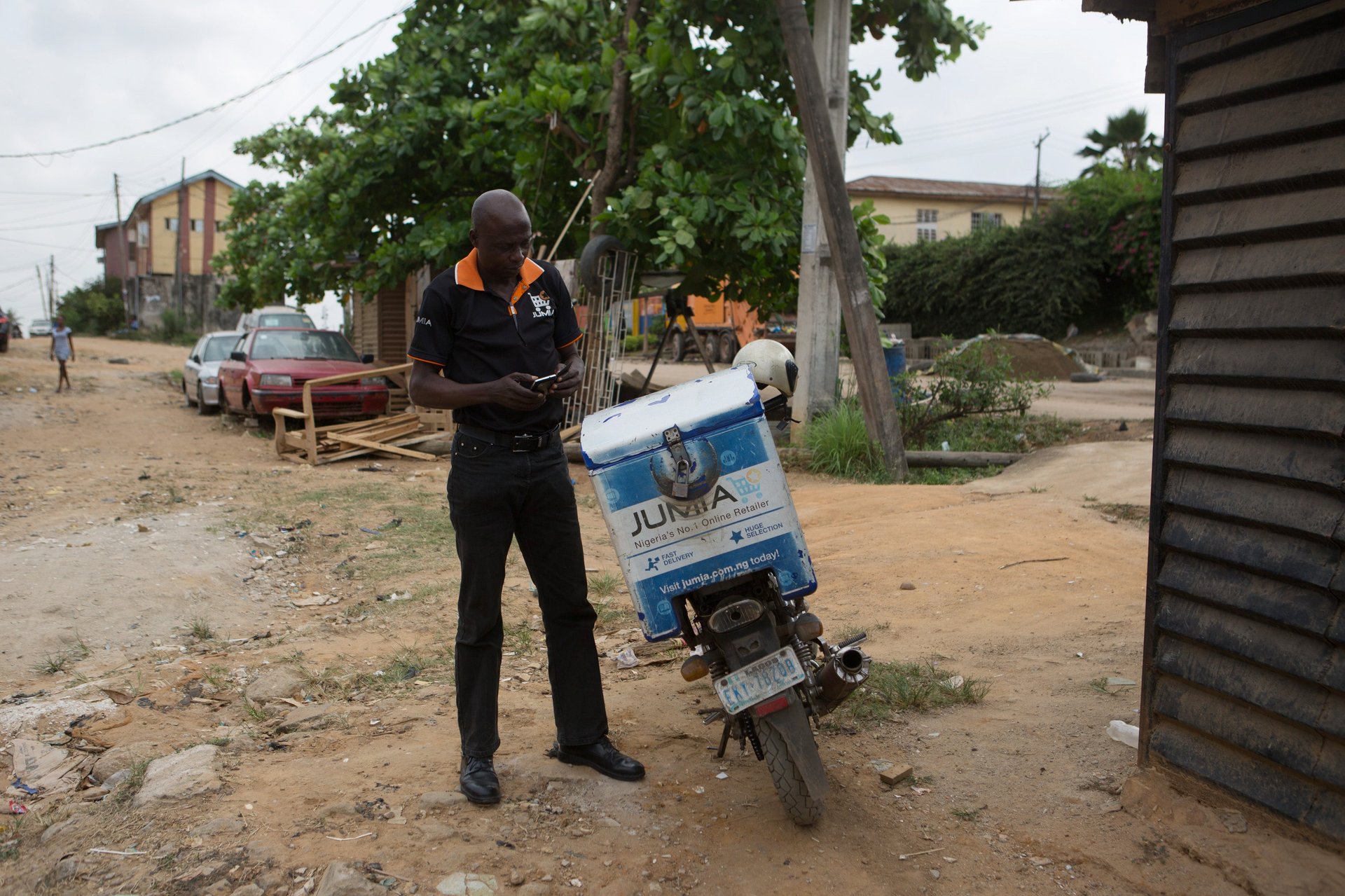E-commerce is thriving in Africa despite hurdles to the “last mile”
Having the best conditions for e-commerce to thrive does not translate into actual online sales in most of Africa.


Having the best conditions for e-commerce to thrive does not translate into actual online sales in most of Africa.
The latest business to consumer (B2C) e-commerce index by United Nations Conference on Trade and Development (UNCTAD) ranks 151 countries globally, including 44 African nations by measuring their readiness for online shopping. The index is based on four indicators: bank or mobile money account penetration, internet usage, availability of internet servers and the reliability of postal services.
But the report notes a “disparity in core indicators and actual shopping” across Africa. Libya, ranked 13th in Africa for e-commerce readiness, has the highest proportion of online shoppers on the continent among people aged 15 and older. Indeed, six of the top ten countries by proportion of online shoppers do not rank among the ten highest ranked countries for readiness in UNCTAD’s report. By sheer volume however, Nigeria, South Africa and Kenya accounted for nearly half of Africa’s estimated 21 million online shoppers in 2017.
Mauritius is the highest ranked of the 44 African nations in the index largely thanks to its large banked population, estimated at 90% financial inclusion. It’s the latest validation for Mauritius’ economy after recently being the only African country ranked in the top 20 of the World Bank Doing Business report. Nigeria—the continent’s largest e-commerce market by number of shoppers and revenue, according to the report—is the second highest ranked African nation while South Africa ranks third.
While the number of online shoppers across the continent has grown 18% yearly since 2014—higher than the global average, Africa’s consumer e-commerce market, valued at $5.7 billion in 2017, is less than 0.5% of the continent’s GDP, far below the global average of 4%.
Ultimately, Africa’s e-commerce markets have what industry insiders usually refer to as the “last mile” challenge. This refers to the movement of goods from a fulfillment center to their final destination. E-commerce retailers in some markets are still struggling to earn the trust of consumers with efficient delivery.
There’s still plenty of room for growth however as 68% of internet users in European Union countries made online purchases in 2017 compared to 13% in Africa. Increasing that number to 50% in Africa could translate into 77 million additional online shoppers and more than double of current revenues. And there’s cause for optimism given growth in internet connections in Africa from 2.1% in 2005 to 24% this year.
Sign up to the Quartz Africa Weekly Brief here for news and analysis on African business, tech and innovation in your inbox